Experts Matter. Find Yours.
Connect for media, speaking, professional opportunities & more.

On the morning of Saturday, November 7, Joe Biden was announced by numerous media outlets as the projected winner of the 2020 U.S. presidential election. President-elect Biden will be only the second Roman Catholic to occupy the nation's highest office. Massimo Faggioli, PhD, is a professor of historical theology at Villanova University. He recently discussed the significance of Biden being only the second Catholic elected president and the work he has in front of him. "Biden is a 'Pope Francis Catholic'—much more aligned to the political culture of the pontificate than John Kerry was as a 'Pope John Paul II Catholic' in 2004, or Kennedy, a good Catholic in 1960. When Kennedy, the first Catholic president, was elected in 1960, U.S. Catholicism was much less divided and in much better relations with the Vatican compared to today," Dr. Faggioli said. "It's the first time we have a Catholic president since the return of religion in the public square." "Anti-Francis Catholicism in the U.S. goes much deeper than Trump Catholics and includes a number of U.S. bishops. It will be difficult for Biden to navigate the triangular relations between Vatican-White House-U.S. bishops," continued Dr. Faggioli. "The U.S. Conference of Catholic Bishops is paralyzed and—especially on social issues—it is difficult to take distance from a rhetoric that is very similar to the GOP, and this will show in dealing with a Biden presidency. Biden as a Catholic will have against him a powerful Catholic media system in the U.S. that makes no mystery of its fierce opposition against Biden's and Francis' Catholicism."
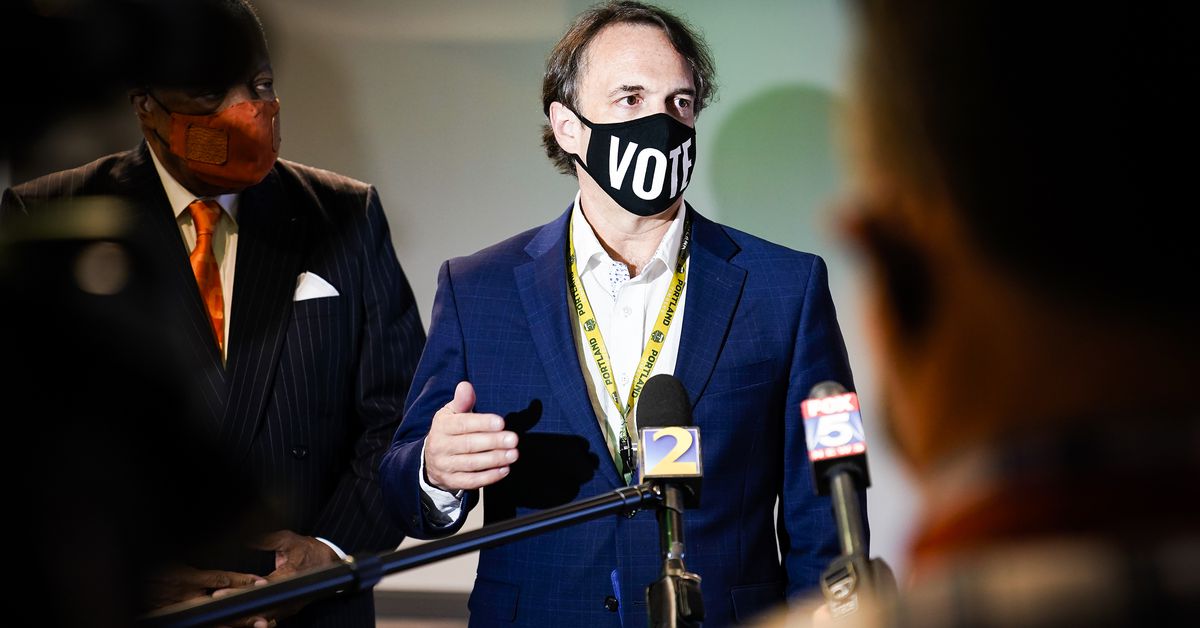
Is it time to stop taking Georgia for granted? The state voted blue – let our experts explain why
As the final few votes still remain to be counted, the state of Georgia has taken a political turn it has not seen in more than two decades. After a long stretch as a presumptively Republican stronghold, in 2020, voters in Georgia made their voices heard and likely shifted the balance of power in Washington. What has changed? Are more voters engaged and showing up to vote? Have demographics shifted? Has the population changed? Have Peach State citizens changed their outlook on issues and politics? Moving forward, few will take the state’s 16 electoral college votes for granted. Is Georgia now one of the battleground states that will shape presidential elections in the future? If you are covering this topic, then let our experts help with your story. Dr. Gregg R. Murray, professor of political science at Augusta University, is available to talk about the presidential race and election results. Murray’s research focuses on political behavior and psychology with specific interests in voter mobilization and turnout. He is also executive director of the Association for Politics and the Life Sciences. Simply click on Murray's icon now to arrange an interview today.

Rob Campbell on why it pays to shake things up
Rob is a mischief-maker and passionately believes in culture, creativity and chaos. He’s worked with names like NIKE, Virgin and Metallica at agencies including Cynic, Wieden+Kennedy and R/GA and has proudly been called an “asshole” by Lars Ulrich, Richard Branson and Dan Wieden. I ask Rob what’s he’s done in his life that has perhaps raised some eyebrows, but that he’s most proud of. He tells us his COVID story, and shares positive insights. We hear how three African American women fundamentally changed his view on the world, and how being exposed to completely different cultures have shaped his life.

Carter Murray on leadership in today’s world
When I was last in New York I met with my friend Carter Murray, Global Chief Executive Officer of FCB, one of the world’s largest global advertising agency networks. Carter oversees the agency’s 120 offices in 80 countries, so as you can imagine, he has a lot to say about leadership. We talked about cultural intelligence and diversity and what makes successful leaders. I ask him how organisational culture has changed, if he still values the same things, and what sort of leaders he’s looking for now.
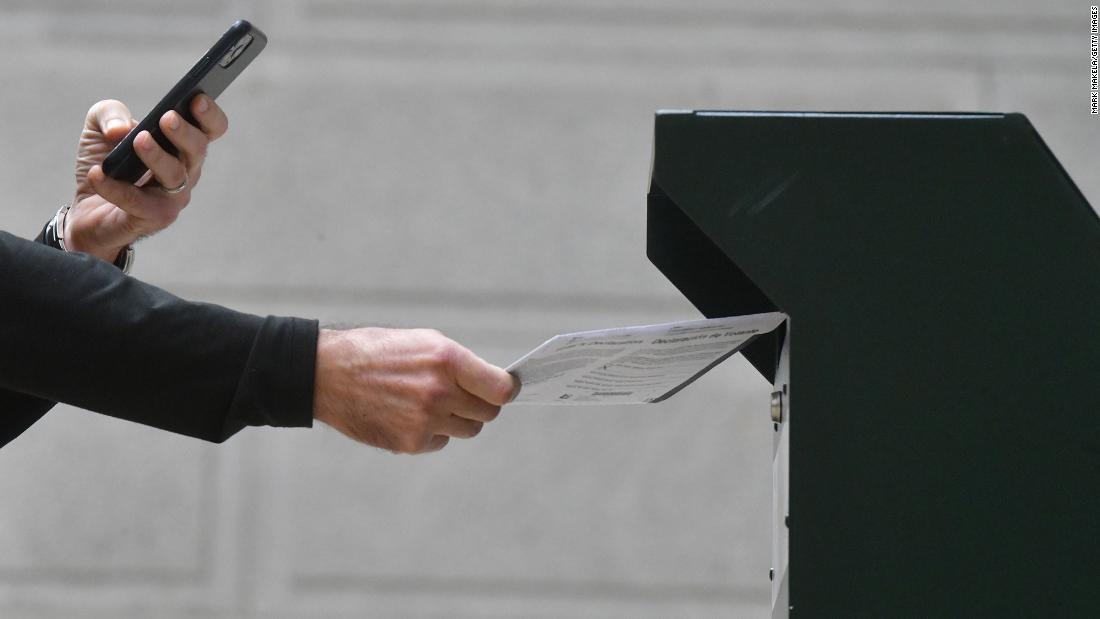
Will it be a long wait for the results on Tuesday?
The election is finally here. And in a year like few others in modern history, the 2020 election may go down like no other as well. Americans are engaged, there is no doubting that. In fact, CNN reported that with one week before the election 75.8 million ballots had been cast representing about 56% of the more than 136.5 million total ballots cast for president in 2016. And there was still time left for more votes to pour in. On Election Day, a massive turnout is expected. But with social distancing in play and other COVID-19 precautions enacted, the day that is already wrought with long lines and delays in the best of years could see for an even longer night for election officials in most states. Americans are making themselves heard – but the results they want to see might not be on election night. A recent article by Pew Research explains why: "Mail ballots pose a challenge to election workers, because they must be manually removed from their envelopes and verified as valid before they can be fed into the tabulating machines. Although election workers in at least 33 states can start processing ballots (but not, in most cases, counting them) a week or more before Election Day, these counts may not be finished by election night depending on how many come in. In a half-dozen states, including the battlegrounds of Pennsylvania and Wisconsin, processing can’t start until Election Day itself. Also, in 22 states (plus D.C.), mail ballots postmarked by Election Day (or in a few cases the day before) can still be counted even if they arrive days later – further lengthening the counting process. Bottom line: Any vote totals reported on election night will be even more unofficial than they typically are." There is going to be a lot to cover leading up to and after Nov. 03 about the final results of what is poised to be a very close and hard-fought election. And if you’re covering, that’s where our experts can help. Dr. Gregg R. Murray, professor of political science at Augusta University, is available to talk about the current race to lead the DNC. Murray’s research focuses on political behavior and psychology with specific interests in voter mobilization and turnout. He is also executive director of the Association for Politics and the Life Sciences.
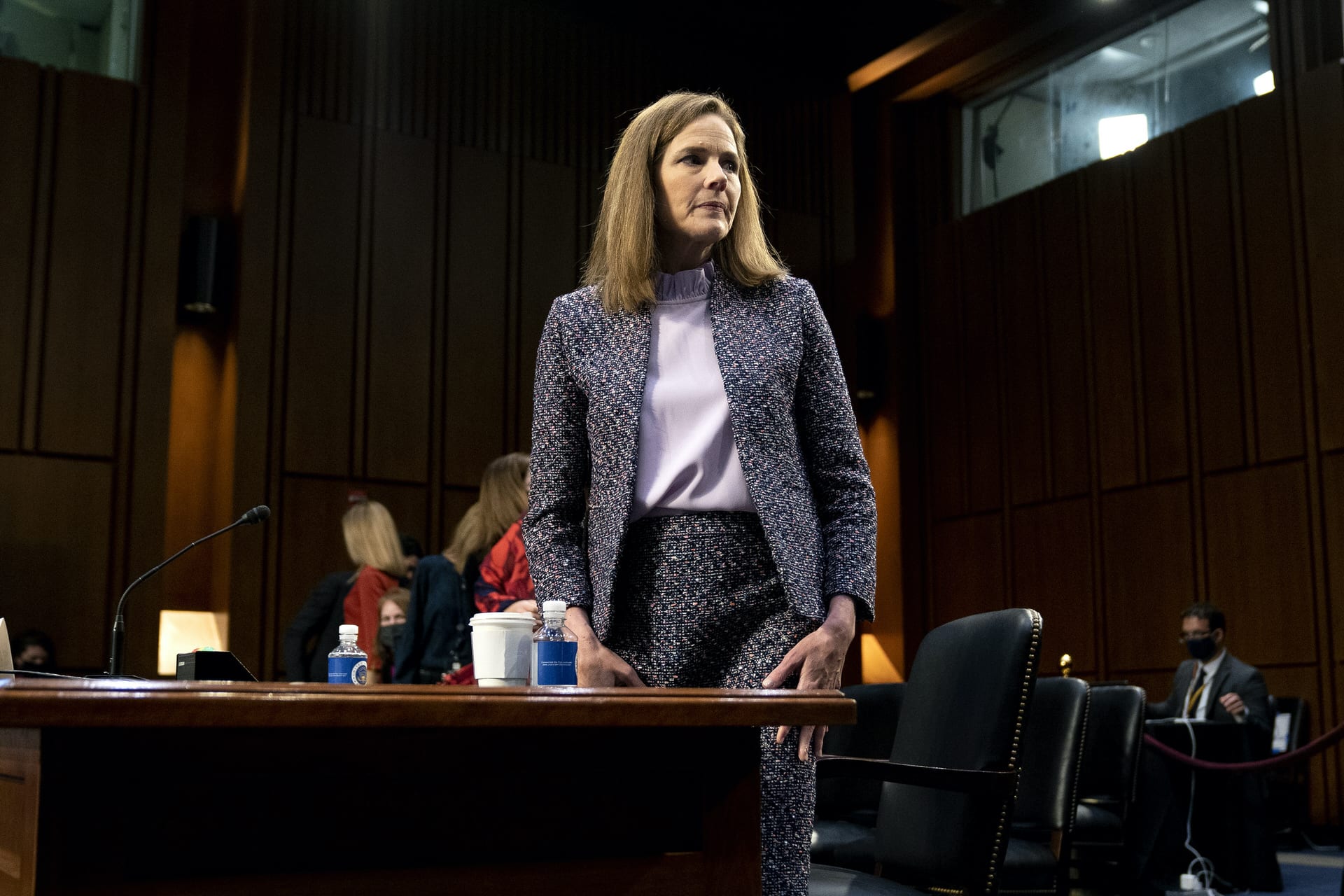
How will the newest pick to the Supreme Court impact America for decades to come?
It was quick, controversial and the outcome was all but obvious once set into motion, but this week Amy Coney Barret t became the youngest female sworn in as a Supreme Court Justice. A sitting judge, a former professor at Notre Dame Law School and mother of seven became President Donald Trump’s third appointee to America’s highest court during his term. The confirmation has left Democrats concerned that the now conservative make-up may sway some very important upcoming decisions. Barrett's confirmation has left Democrats concerned about the fate of the nation's health care law, the Affordable Care Act, and Roe v. Wade, the landmark decision allowing women to have access to abortions. The court will be hearing a case on the constitutionality of the ACA's individual mandate in November. Barrett could also end up weighing in on a general election-related case involving the man who nominated her, should the results of the race between President Trump and Joe Biden come before the Supreme Court. October 26 - CBS News In an election that may see several lawsuits about voting, mail-in ballots and other key elements that could decide the fate of a state or even the presidential election – the Supreme Court where Donald Trump may have a say indecisions and outcomes. If you are a journalist covering this ongoing story, that’s where our experts on this topic can help. Dr. Martha Ginn, professor of political science at Augusta University, is an expert on the judicial process, constitutional law and the U.S. Supreme Court. Dr. Ginn is available to speak with media about this topic – simply click on her icon now to arrange an interview today.
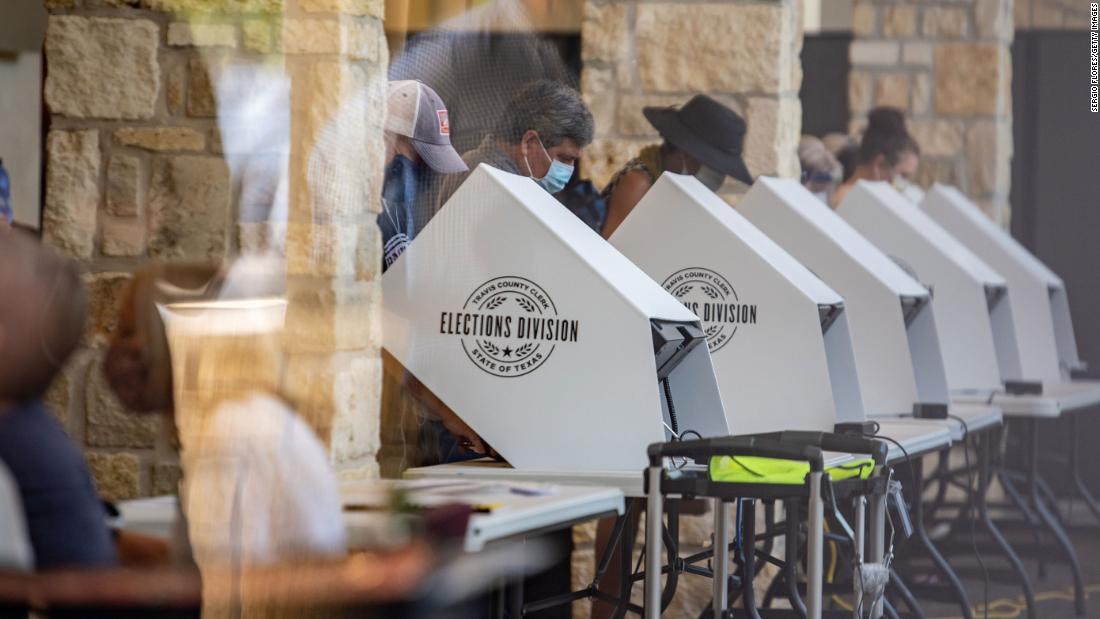
It’s finally here. The campaigns are on their final push and as of Tuesday night – the results will start rolling in. This has been one of the most unique elections in modern history. A divisive and bitter campaign fought during a global health crisis. Texas, which has 38 electoral college votes, second only to California in number – may be in play. Though Texas has not swung blue since 1976, Tuesday night a lot of eyes will be watching Texas to see what role it takes in deciding the outcome of the election. If you are a reporter covering the election in Texas, the key issues in the state and what motivates it to vote for either candidate – then let our experts help. Jim Riddlesperger is professor of Political Science at TCU and focuses on American politics, with emphasis in the presidency, Congress, and Texas politics. Professor Adam Schiffer writes and speaks on media bias, presidential nomination contests, political news, elections, and public opinion. Both are available to speak with media – simply click on either expert’s icon to book an interview today.
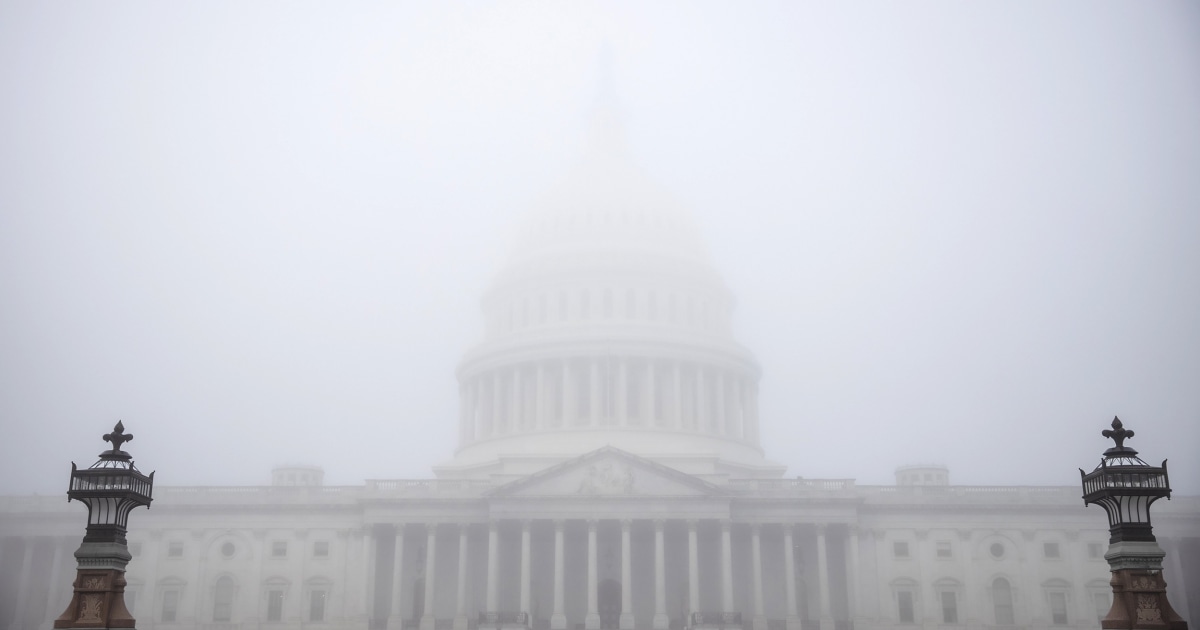
Is a reckoning coming to Washington's once most invincible politicians?
With all eyes on next Tuesday, America could be seeing a serious change in the make-up of the Senate and House of Representatives. With a divided country and an electorate on edge and looking for change, the usual gift of incumbency and re-election is now a far from guaranteed blessing for those Washington veterans for whom re-election is usually a given. According to NBC, there are more than a handful of high-profile and once thought to be invincible politicians on the ropes. But can popular politicians sustain the thirst for change when voters cast their ballots? Susan Collins, John Cornyn, Lindsey Graham and even Mitch McConnell may be looking for work in 2021. It’s a fascinating angle to what has been a truly unique time in American politics. And if you are a journalist covering the election and the balance of power in Congress, then let our experts help. Dr. Stephen Farnsworth is a sought-after political commentator on subjects ranging from presidential politics to the local Virginia congressional races. He has been widely featured in national media, including The Washington Post, Reuters, The Chicago Tribune and MSNBC. Dr. Rosalyn Cooperman, associate professor of political science at the University of Mary Washington and member of Gender Watch 2018, is an expert on women in politics. Both experts are available to speak to media – simply click on either icon to arrange an interview.

MEDIA RELEASE: Stay Alert Stay Safe: Daylight saving time ends soon
CAA South Central Ontario ( CAA SCO) is reminding all motorists and pedestrians to stay alert as daylight saving time ends at 2 a.m. on Sunday, November 1. The return to standard time means fewer daylight hours and reduced visibility for all road users. “We know that typically, in November, there is a spike in collisions between motorists and pedestrians. Road safety and pedestrian safety are a shared responsibility. Taking precautions and being aware of other road users helps us all arrive at our destinations safely,” says Raymond Chan, manager of government relations, CAA SCO. While pedestrian incidents increase every year at this time, the latest research indicates the potential for harm is even higher today due to COVID-19. Earlier this year, CAA SCO conducted a study of 1500 Ontario licenced drivers that found, because of COVID-19, people are most comfortable driving their vehicles, walking or cycling to get around over the coming months. The study also found that: Respondents were more likely walking one to three times a week before the pandemic but are more likely to walk four to seven times per week during the pandemic. These numbers are in line with a CAA National survey that also found 30 per cent of cyclists increased their activity. “Our study also showed that not yielding to cyclists/pedestrians and drivers running stop signs or red lights were the most reckless driving behaviours seen within city limits during the pandemic," says Chan. "We are facing additional challenges this year. Physical distancing means pedestrians may step out onto the road to keep their distance from others or may take longer to cross at intersections. It is important now more than ever to remind road users to follow the rules of the road and be patient." What motorists can do to stay safe: Always look for pedestrians crossing the road. Be alert and attentive while driving and yield to pedestrians who are stepping on to the road to maintain physical distancing. Mind your blind spots. Be aware of blind spots when making turns at intersections. Stay focused and vigilant behind the wheel. Avoid distractions inside and outside of your vehicle. Slow down in school zones. Reduce your speed and obey speed limits in school zones and residential neighbourhoods. Prepare for the unexpected. Residential streets and school zones have different types of obstacles, such as children playing outdoors, riding bikes, skateboarding, etc. Be cautious and considerate. Be alert around stopped transit vehicles and be courteous to pedestrians with different mobility needs that may require more time. Use your lights. Motorists should use their full lighting system when it gets dark and in low visibility situations. What pedestrians can do to stay safe: Be careful when physical distancing on the sidewalk. Try to avoid stepping out onto road and if you end up stepping on the road, ensure there are no vehicles in the lane. Always be aware of your surroundings. Avoid distractions and be alert while crossing the street and stepping onto the road. Follow the flow. Follow signals and cross at designated locations or crosswalks. Stop, look, and listen. Ensure all traffic has come to a complete stop before crossing the road. Keep an eye out. Make eye contact with motorists—never assume that drivers can see you or know your intentions. Be visible. Pedestrians should wear bright or reflective clothing or accessories at night to help with visibility. Additionally, motorists should take extra caution on Halloween as some regions could have trick or treaters and they may have the added visual restrictions of wearing a mask or face shield. CAA SCO is offering free reflector tags at CAA Stores that can be attached to backpacks and jackets. Find your nearest CAA Store here and stop by to get up to four free tags per family.

Want to save on home loans? Just talk to your peers!
For most of us, finance is complex. Yet making financial decisions is part of day-to-day life. Take mortgages. Around 60 percent of U.S. households have a home mortgage, but how many actually understand its real value? Calculating things like interest rate trade-offs or closing costs is not easy, and research finds that a majority of families make financial mistakes because they fail to understand benefits or savings that might be open to them in refinancing. There are ways to overcome this kind of “information friction”—the obstacles to understanding that make it hard for people to process complex financial ideas and concepts. One of these is education. Ensuring that people have direct access to clear information can help inform household decisions. That seems pretty basic. Another, perhaps less understood, mechanism is the “peer effect”—the way we learn from and are influenced by what our peers or colleagues say or do. A new paper published in the Review of Financial Studies by Gonzalo Maturana, associate professor of finance, takes a fresh look at how the peer effect can help households make better decisions about their mortgages. And he finds that work colleagues and associates can actually have a far greater positive impact on our financial outcomes than we might expect. Together with Jordan Nickerson from MIT’s Sloan School of Management, Maturana ran a large-scale study of a particular U.S. peer group: public school teachers employed by the state of Texas. Here’s what the study found: Where there was a lot of mortgage refinancing going on among teachers in a particular school, individuals were a stunning 20.7 percent more likely to refinance their own mortgage. In other words, they were far more disposed to investigate alternatives and take advantage of the better deals on offer. The peer effect was also a critical factor in their subsequent choice of mortgage lender. Maturana and Nickerson also found that the more savings a particular peer group was making in mortgage repayments, the more refinancing activity there was in that school or teacher network. It is clear. With financial decisions, the network effect can create a positive feedback loop, said Maturana. Household finance and mortgages are top of mind and play a part in most American families – and if you are a journalist looking to cover this topic – then let our experts help. Gonzalo Maturana is an Associate Professor of Finance at the Goizueta Business School. He is an expert in the areas of corporate, household and real estate finance. Gonzalo is available to speak to media regarding this topic – simply click on his icon now to arrange an interview today.







